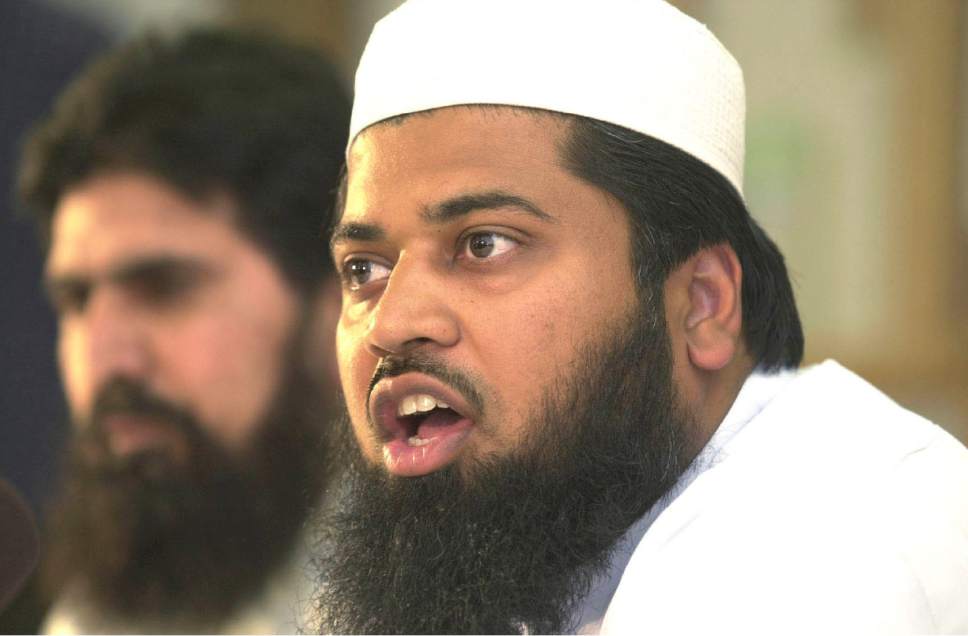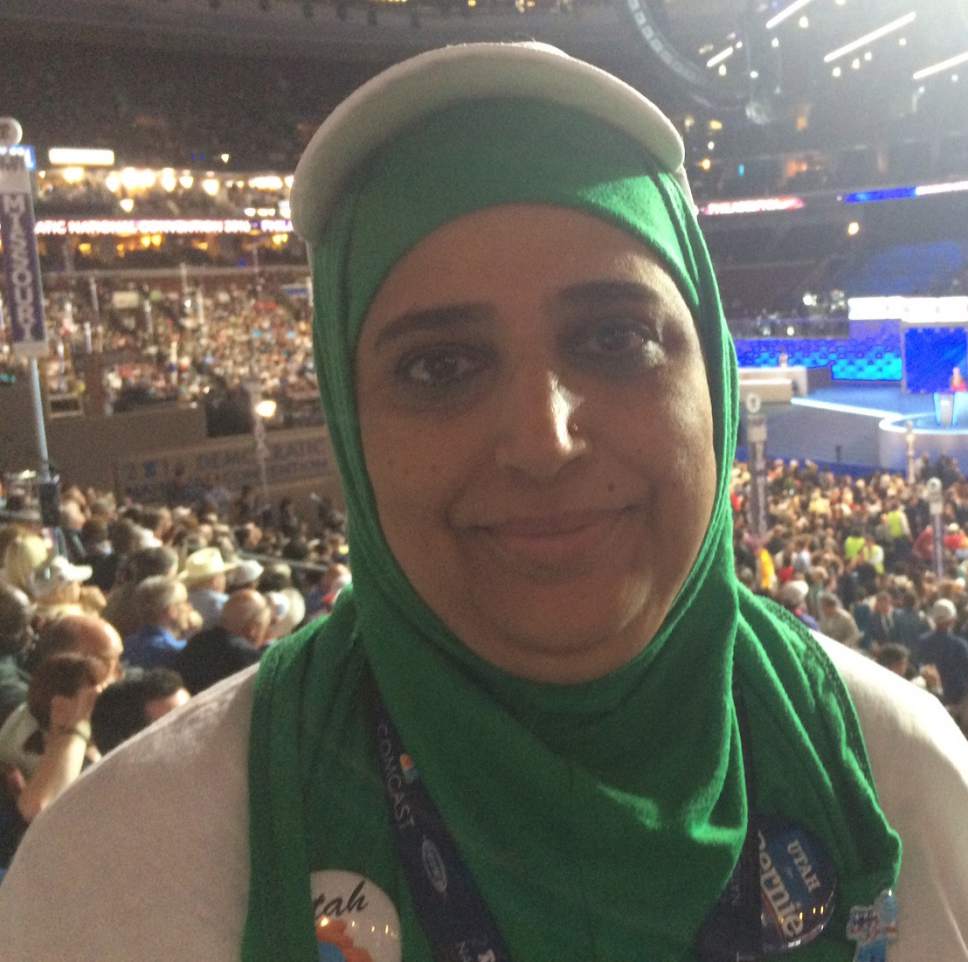This is an archived article that was published on sltrib.com in 2016, and information in the article may be outdated. It is provided only for personal research purposes and may not be reprinted.
Many Utah Muslims woke up Wednesday to "broken hearts and crying eyes" after the electoral victory of Donald Trump and a presidential campaign that repeatedly aimed threats and suspicions at their community.
Reactions ranged from shock, sadness and disappointment to a sharp sense of betrayal that large numbers of Utahns — many of them Mormons — supported the Republican candidate despite his inflammatory and stereotyping comments about Islam.
For some, decades of feeling safe in the state and viewing it as a welcoming place evaporated in a day with the Republican's 47 percent-to-28-percent election margin over Democrat Hillary Clinton.
"My fear level has gone from 100 to 1,000 overnight," said Noor Ul-Hasan, a Muslim and longtime Utahn heavily involved in community, political and interfaith efforts. "I did not expect it at all, not to this degree.
"I feel that the Mormons in this state did not have my back," said Ul-Hasan, who was a delegate to this year's Democratic National Convention where Hillary Clinton claimed the party's nomination.
Ul-Hasan said she expected "at the very least" that Utah voters would have opted for conservative Evan McMullin in greater numbers instead of Trump, "to show that Mormons totally understand what it's like to be persecuted. And yet, they didn't stand by me."
She and others fear the result might encourage hate crimes against Muslims. Several said they hoped that Trump's campaign calls for a ban on Muslim immigration, police surveillance of mosques and rules that those already in the country register in a database would prove to be either empty election rhetoric or barred by U.S. law. (The Church of Jesus Christ of Latter-day Saints officially condemned the Muslim immigration ban proposal.)
"Thank God there is a Constitution, and there are laws and courts in place," said Imam Shuaib-ud Din, spiritual leader at the Utah Islamic Center in Sandy.
On its Facebook page, Utah's Muslim community posted a brief comment early Wednesday:
"We are all waking up to broken hearts and crying eyes," the post read. "Have faith. He is the best of planners."
It was accompanied by a link to advice on how to talk to Muslim children about Tuesday's election, quoting Hadith 19, part of the faith's sacred accounts from the life of Islam's Prophet Muhammad: "And if the whole world were to gather together in order to harm you, they would not harm you except if God had written so."
Nearly 20,000 Muslims call Utah home.
Many have lived in the Beehive State for generations, and the nation's largest Muslim civil rights and advocacy organization said Wednesday that, regardless of Trump's win, "American Muslims are here to stay."
"We are not going anywhere, and will not be intimidated or marginalized," said Nihad Awad, executive director of the Council on American-Islamic Relations.
"God willing," Awad said, "the American Muslim community will continue to mobilize to challenge bigotry, to uphold justice and to protect the freedoms and rights of all Americans."
Like officials at CAIR, one Utah community leader said he accepted the result of the U.S. democratic process and hoped the president-elect's style would change once he became commander in chief.
"The ball is in his court," said Nadeem Ahmed, board chairman of the Utah Islamic Society. "I don't know what will happen, but I think most people understood this was just political rhetoric to get him elected."
Still, Ahmed, said he was "more concerned about his racist remarks and comments not offending people enough."
Twitter: @TonySemerad





